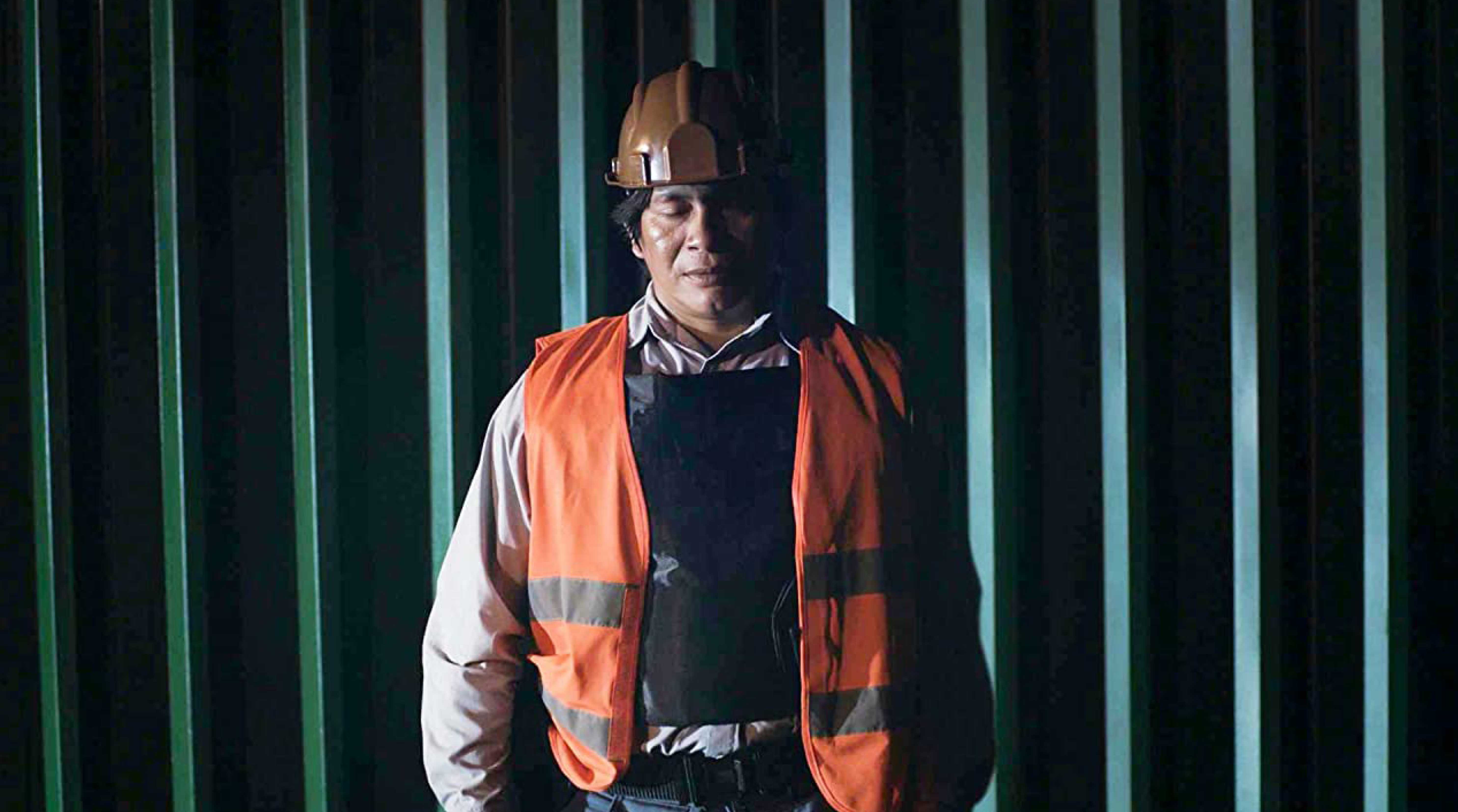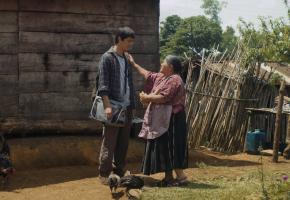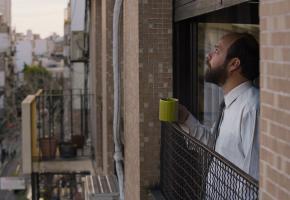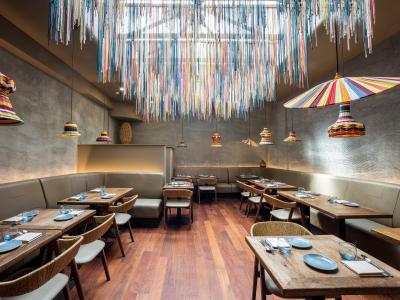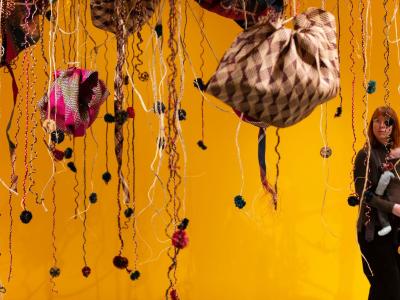Régis Myrupu as Justino
Set in the bustling industrial hub of Manaus in the Upper Rio Negro region of Brazil, Maya Da-Rin’s first fiction feature, THE FEVER (2019) is a powerful comment on the struggles of the Amerindian peoples in modern day Brazil, as experienced through the moving relationship of a father, his daughter and their world.
Not one for too much flag-waving, despite her deeply felt beliefs, Da-Rin has chosen a subtle documentary feel for her film. We follow the life of the recently widowed, 45-year old Justino (Régis Myrupu), a member of the indigenous Desana tribe, who works as a security guard at a massive container port depot in Manaus, as far from his ancestral lands and traditions as he could be. Beset by a periodic mysterious fever himself, Justino feels so tired and lethargic that the PR department at the port has seen fit to issue him with a warning.
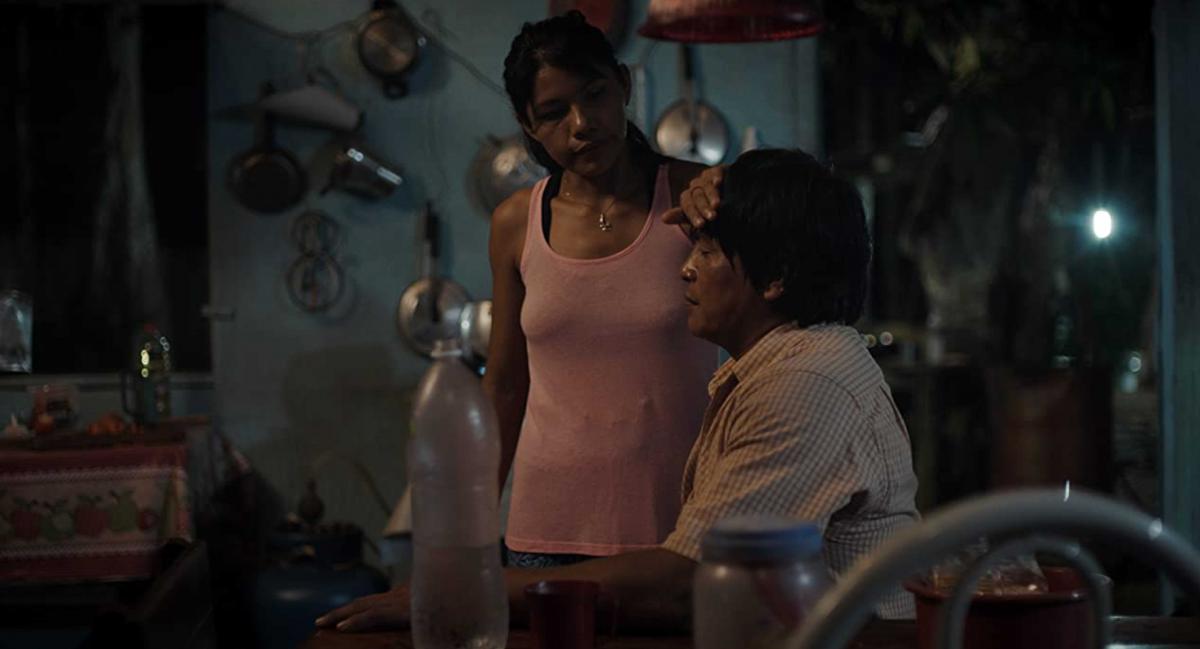
Rosa Peixoto as Vanessa and Régis Myrupu as Justino
Dwarfed by the giant cranes and mountains of containers, Justino takes refuge in the narrow alleyways between them, where he grabs moments of peace to doze off. Maybe, the labyrinths remind him of being deep in the jungle of his roots. He complains that, as a security guard, he has to lurk around ‘like a hunter with no prey’. Despite having worked at the port for 20 years, he remains an outsider. His co-worker, Wanderlei (Lourinelson Vladimir) manipulates the work shifts to his advantage and make casual racist remarks aimed at Justino, oblivious to their effect.
Justino’s main companion is his youngest daughter Vanessa (the enigmatic Rosa Peixoto) with whom he lives on the outskirts of the city. He sleeps in a hammock and does not really belong in Manaus, having never really adjusted to urban life, unlike his children. Every day, when he alights from his bus on his way home, he is drawn to the forest that lines the route. That is an environment he understands. When his brother and sister-in-law come to visit and ask him to return with them to the forest, he wonders whether he might no longer belong in the traditional life either, despite his yearnings.
With enormous dignity and stoicism, Justino insists his daughter must take up her 5- year scholarship to study medicine at the University of Brazilia, even if it will leave him totally alone. His son’s family are so urbanized, they would never consider returning, nor would they take him in.
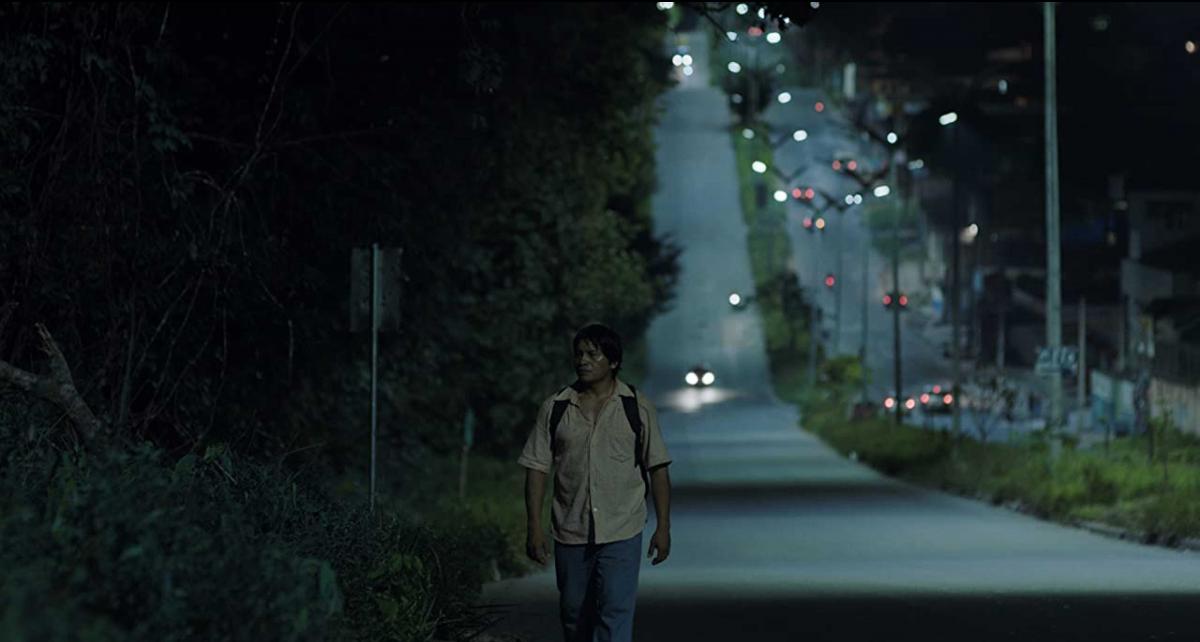
Régis Myrupu
Reminiscent of the magical dream worlds of Thai director Apichatpong Weerasethakul, in ‘THE FEVER’ myths, dreams and reality are intertwined. As Justino feeds his grandson Josué (a captivating Rodson Vasconcelos), he relates an old traditional folk tale about a man who goes hunting against his wife’s wishes, as there is ‘plenty to eat’. When he waits for the rain to stop so he can take aim at a monkey with his blowpipe, he falls asleep and is whisked away by the monkeys to their spirit world, where he discovers he can ease the pain of suffering animals. It is not clear whether the hunter wants to remain, but the monkey’s leader promises to escort him home. Atmospheric night shots of the rainforest coated in mists invite the feelings that man and beast can travel into the spirit world and back, giving a dimension to the folk tales and myths that include shapeshifting animals like parrots, peccaries, paca, agoutis or opossums, who are believed to be, not only animals, but people in their own right, leading Justino to feel he is being followed by a mysterious creature, even in his dreams.
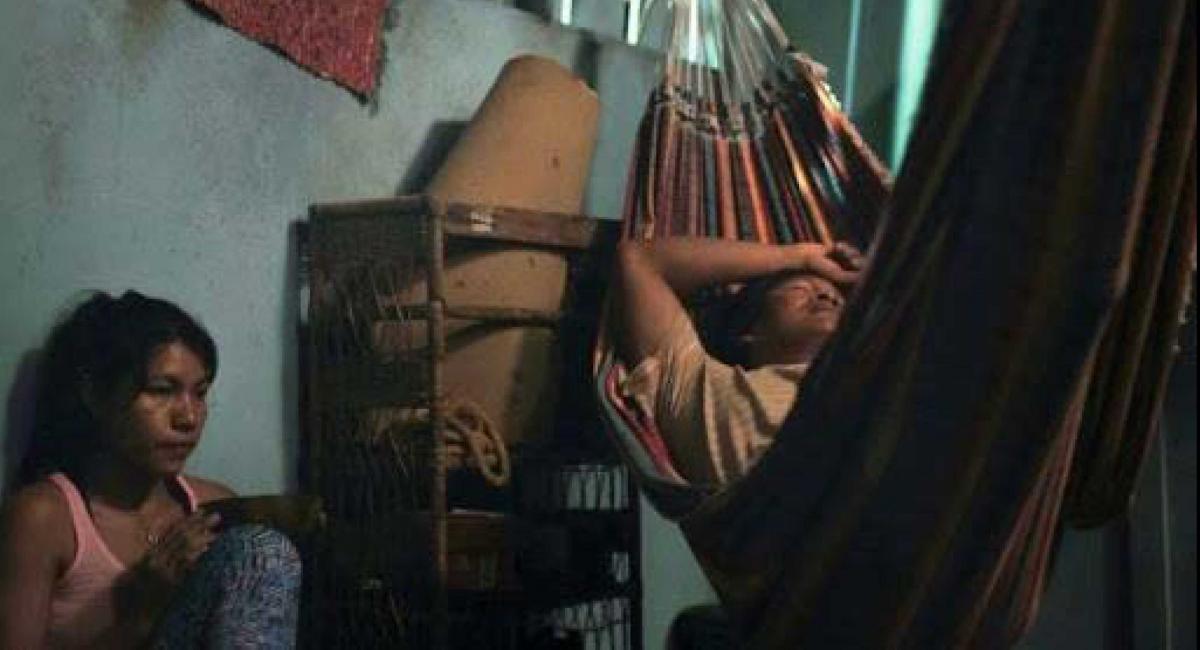
Rosa Peixoto and Régis Myrupu
Maya Da-Rin started out in documentaries, also with anthropological themes. ‘THE FEVER’ was co-written by Maya Da-Rin with Miguel Seabra Lopes. She says:
“I was confronted with a new generation of urban’ indigenous people who carried their traditions with them as they struggled to find their place in Brazilian society.”
Dan-Rin and Seabra spent 6 years researching the film. The original idea arose out of documentaries that Da-Rin had filmed in the area, ‘Lands’ (2010) and ‘Margin’(2007) during which time she found herself drawn into indigenous issues. Loosely based on real events experienced by the people and families that she got to know personally, Da-Rin later perfected the script by working with friend and anthropologist Pedro Cesarino.
It took a long time to cast the film, so she chose to work closely with the ‘non-actors’ in rehearsals. Using improvisations and discussions with the cast, they arrived at the scenes we witness in the film today. The film is shot in Portuguese and Tukano. The cinematographer Bárbara Alvarez shot the film with much sensitivity, complemented by the excellent sound design by Felipe Schultz Mussel.
In the area of the Upper Rio Negro, there are over 20 different indigenous groups. These include the Desana (to which the protagonist Régis Myrupu belongs) and the Tariano, Rosa Peixoto (Vanessa) & Jonathan Sodré (Everton). All these communities use Tukano as the lingua franca, which enables them to communicate among themselves. There may be differences, but they share myths, living and subsistence activities and much of their culture.
If you read of the terrible abuses that these groups have been subjected to through the ages, it makes you wonder any remain at all. The Conquistadores first contacted them, but did relatively little harm. They were followed by the Portuguese, who came looking for slave labour for their sugar and cotton plantations, then they were treated with astonishing brutality by the Rubber Barons who wanted worker-slaves to tap the rubber trees in remote parts of the jungle.
Yet, possibly the greatest damage was caused by the early 20th century Salesian missionaries who arrived puffed up with self-righteousness. They branded the traditional living quarters (Malocas or longhouses) as ‘promiscuous dens’ and forced them to live in single-family houses. The Salesians then took the children away and placed them in ‘educational’ boarding schools, all the while trying to destroy the indigenous cultures by prohibiting them from practicing their traditional dances or speaking their languages, let along marrying outside their ethnic group (as was their custom). Their shamans (Pajés) were abused as mere charlatans. These forms of ‘genocide’ under a ‘religious’ banner were so appalling that that it is hard to see how any of the groups were able to survive. There are no words to describe the true horror of such crimes. The never-ending fight continues, as today, since the government introduced the Manaus Free Economic Zone in the 1960s, they find themselves facing loggers, legal and illegal, much immigration from all over Brazil, as well as gold miners. These issues are subtly suggested without virtue signalling in ‘THE FEVER’, which makes the film all the more powerful and poignant. As Justino comments: “… in the forest you can make your own flour and hunt but, in the city, without money, you starve”.
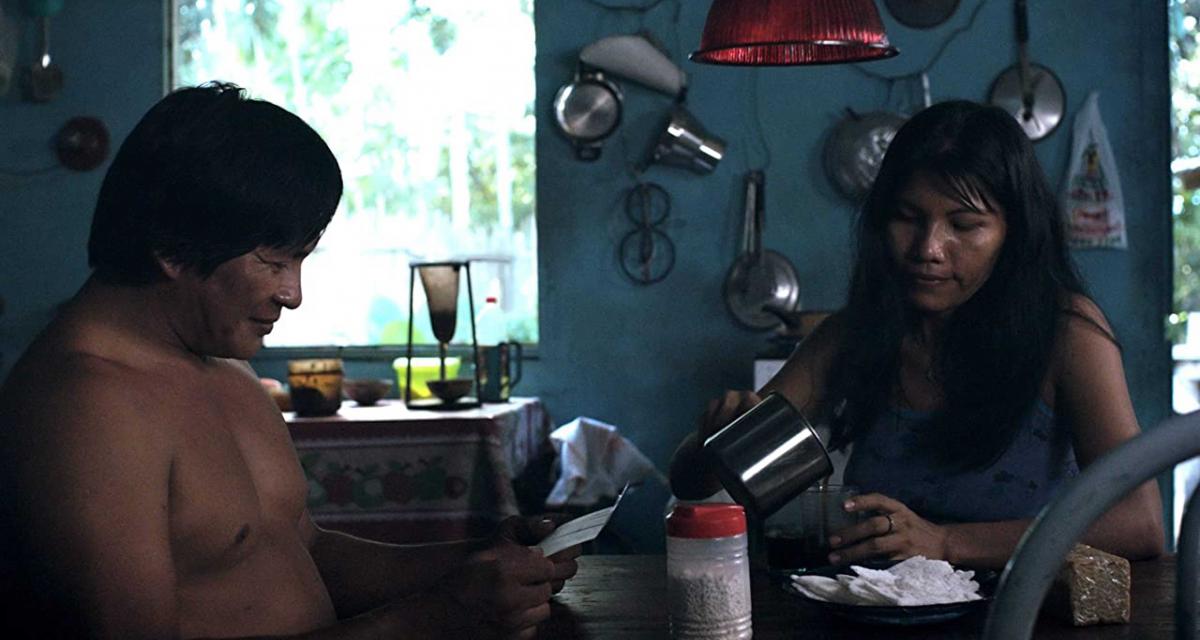
Régis Myrupu and Rosa Peixoto
The lure of the forest never leaves Justino, to the point where he can no longer fight the call. Not so for his offspring who have adapted to city life: “[my son] Josué has school and I have a job”. His uncle responds” You only speak the white man’s language so we cannot understand each other.” Despite that, some people from these communities who were severed from their ancestral lands, will find that leaving it behind can make them sick with a fever. The film leaves us with a beautiful and haunting song, composed and sung by Rosa Peixoto.
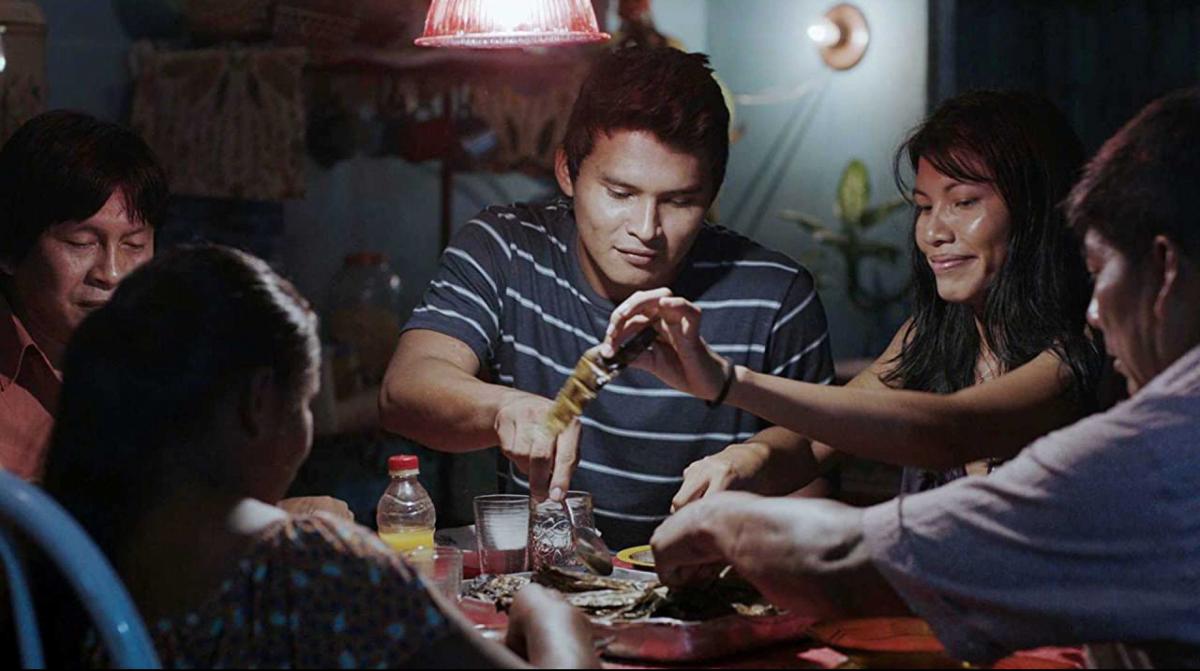
The Fever
THE FEVER (2019) directed by Maya Da-Rin
will be released on August 6th 2021 by New Wave Films
Credits: Brazil/France/Germany in Portuguese and Tukano,
Director Maya Da-Rin
Writers Maya Da-Rin, Mighuel Seabra and Pedro Cesarino
Producers Maya Da-Rin, Leonardo Mecchi and Juliette Lepoutre
DOP Bárbara Alvarez
Sound Felipe Schults Mussel
Editor Karen Akerman
Cast:
Justino Régis Myrupu
Vanessa Rosa Peixoto
Everton Johnatan Sodré
Jalmira Kaisaro Jussara Brito
André Edmildo Vaz Pimentel
Marta Anunciata Teles Soares
Wanderlei Lourinelson Vladimir
Josué Rodson Vasconcelos
Awards& Nominations include: -
Biarritz International Festival of Latin American Cinema 2019:BEST FILM ( Abrazo) / Brazilia Festival of Brazilian Cinema 2019: CANDANGO TROPHY /Best Sound/ Best Actor/ Best Cinematography/ Best Director/ Best Film /Chicago Int Film Fest 2019 Best Director (Silver Hugo)Best Feature (Gold Hugo) / Fopresci Prize /Also award wins in Lima 2020/ Vigo 2020; Locarno 2019/ Mar del Plata 2019/ Portland 2020/ Rio International Film Festival 2019.


